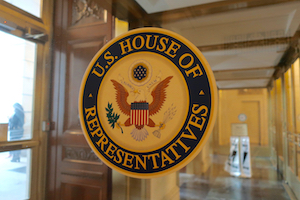 It looks like SECURE 2.0 will be coming up for a vote in the House this week after all.
It looks like SECURE 2.0 will be coming up for a vote in the House this week after all.
According to a March 25 Dear Colleague letter from House Majority Leader Steny Hoyer (D-MD), “during the week of March 28, the House will take up legislation to help Americans save for retirement.” The communication noted that, “building on their bipartisan SECURE Act from 2019, Chairman Neal and Members of the Ways and Means Committee marked up H.R. 2954, the Securing a Strong Retirement Act, last year, and it includes bipartisan provisions from bills introduced by many of our Members.”
Some had written off action this year when the bill failed to make it into the consolidated spending bill a couple of weeks back. However, it could be considered as early as tomorrow.
The Securing a Strong Retirement Act of 2021 (H.R. 2954)—a.k.a. the SECURE Act 2.0—was approved by the House Ways and Means Committee in May 2021 by a unanimous, bipartisan voice vote, but it has not yet been considered by the full House of Representatives.
Similarly, the Retirement Improvement and Savings Enhancement (RISE ) Act (H.R. 5891) was approved by the House Education and Labor Committee in November 2021 by a unanimous voice vote, but it also has not yet been considered by the full House.
In its current form, the SECURE Act 2.0 bill would:
- Increase the small employer pension plan start-up credit to cover 100% of the cost to small employers to implement a 401(k) plan for the first three years.
- Create an additional new credit to encourage small employers to make direct contributions to their 401(k) plan for their employees, offsetting up to $1,000 of these employer contributions for each participating employee.
- Expand automatic enrollment in 401(k) plans by requiring 401(k), 403(b) and SIMPLE plans to automatically enroll participants in the plans upon becoming eligible, with the ability for employees to opt out of coverage.
- Reform the family attribution rules by modernizing the current tax law that penalizes small businesses in community property states and disproportionately affects women business owners.
- Broaden the scope of the SECURE Act’s pooled employer plan or open multiple employer plan provisions to allow unrelated public education and other non-profit employers to join a single 403(b) plan.
Hoyer concluded that “by expanding automatic enrollment in employer provided retirement plans, simplifying rules for small businesses, and helping those near retirement save more for longer, this legislation will help increase Americans’ access to retirement funds and help families save for the future.” He also thanked Chairman Bobby Scott (D-VA) and Members of the Education and Labor Committee “for their work moving this legislation forward by marking up several critical components that will benefit millions of Americans.”

